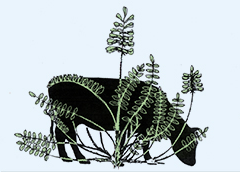Abstract
Three natural occurring plant toxins from Veratrum californicum and one related synthetic analog were screened for embryotoxicity using in vitro bovine embryo production techniques. Bovine oocytes were aspirated from ovaries collected from a local abattoir and embryos were generated through in vitro maturation (IVM) and in vitro culture (IVC) procedures. The three natural steroidal alkaloids, cyclopamine, jervine and veratramine and the synthetic steroidal derivative of cyclopamine, cyclopamine-4-en-3-one, were added to IVM and IVC media at 12 μM. Oocytes were exposed to the toxins during maturation (IVM) and pre-implantation embryo during culture (IVC). Cleavage rates and embryo growth (morula and blastocyst production) and development through the hatched blastocyst stage were evaluated. Cyclopamine and cyclopamine-4-en-3-one inhibited cleavage rates and embryo growth and development of morulae and blastocysts in culture. Oocytes that were exposed to cyclopamine and cyclopamine-4-en-3-one during IVM only showed reduced cleavage rates and resulted in lower numbers of embryos that developed to the morula, blastocyst, and hatched blastocyst stages. The effects of these steroidal alkaloids on the oocyte during IVM and on the embryo during all stages of development up to and including the hatched blastocyst stage, demonstrates a dramatic cytotoxic effect on oocytes maturation and early pre-implantation embryos. This research also suggests that the Hedgehog signaling pathway may play a role in the maturing oocyte as well as the pre-implantation embryo. These in vitro fertilization techniques provide an economical, rapid through put and effective method to screen natural toxins, especially suspected reproductive toxins for cytotoxicity.
Recommended Citation
Welch, Kevin D.; Wang, Shiquan; Lee, Stephen T.; Gardner, Dale R.; and Panter, Kip E.
(2023)
"Embryotoxic Effects of Three Natural Occurring Veratrum Alkaloids and One Synthetic Analog using In Vitro Produced Bovine Embryos,"
Poisonous Plant Research (PPR): Vol. 6, p. 3-12.
DOI: https://doi.org/10.26077/c087-30ee
Available at:
https://digitalcommons.usu.edu/poisonousplantresearch/vol6/iss1/1

